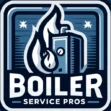Services We Offer
When boiler and heating issues arise, there's one name you can trust to come to your rescue: Boiler Service Pros. With a single-minded pledge to your well-being and convenience, Boiler Service Pros offers comprehensive services designed to keep your home's heating, air conditioning and plumbing in prime condition.
How can we help you?
Our sweeping boiler, furnace, air conditioning & plumbing services comprise of:
- Boiler Repairs: Repairing boilers ensure efficient heating and safety. They involve diagnosing issues, changing parts, and regular maintenance to prevent future breakdowns and energy waste.
- Boiler Maintenance: During boiler maintenance, it is routine to examine for leaks, verify pressure levels, clean components, examine safety valves, and guarantee the efficient and safe operation of the boiler.
- Boiler Installations & Replacements: For boiler installations, we offer knowledgeable advice on choosing the right model, offer detailed installation guides, and offer troubleshooting tips for efficient operation.
- Furnace Repairs, Maintenance & Installations: To assist with furnace repairs, maintenance, and installations, we deliver professional guidance, troubleshooting tips, and detailed instructions. Our knowledge encompasses various furnace types and brands, guaranteeing efficient, safe, and cost-effective solutions tailored to your specific needs and preferences.
- AC Repairs & Installations: With our staff of professionals, we specialize in central air conditioning fixes, maintenance, and installations, ensuring the peak performance and energy efficiency. Our services are reliable and tailored to meet your specific requirements, with a focus on achieving client contentment and the long-term durability of your system.
- Plumbing Inspections: We believe in proactive care. Our inspections of plumbing systems detect potential issues early, saving you time and money.
- Drain Cleaning: Our drain cleaning services ensure your water flows freely.
- Water Treatment: Uncontaminated, safe water is vital. Our company offer water treatment systems to enhance the condition of your water supply.
- Water Heaters: Our team covers everything from installation to maintenance and repairs, our experts handle all aspects of water heaters, ensuring you always have access to hot water.
- Leaking Pipes: Leaks are often a bother. We locate and fix leaks quickly to prevent damage from water and help you save from expensive water bills.
- Frozen Pipes: Winter woes? We thaw frozen pipes and implement preventive measures to ensure your pipes don’t freeze again.
- Water Lines: Our experts handles all things concerning plumbing lines, such as maintenance, updates, as well as brand new setups.
With Boiler Service Pros, we are proud in our prompt, reliable, and client-focused approach. Our highly trained professionals are ready 24/7, prepared to tackle any boiler & plumbing issue you face. Heating & plumbing emergencies can upset your life, so we provide rapid and effective solutions.
With our company by your side, you can feel confident knowing that your home’s heating & plumbing needs are in skilled hands. Your satisfaction and peace of mind are our top priorities. Contact us today for all your heating & plumbing needs and discover the difference of real expertise.
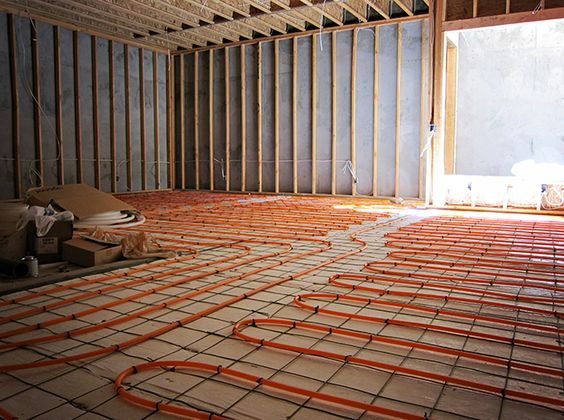
Comprehensive How-to Guide to In-Floor Heating: Embracing Comfort and Efficient Home Heat
Are you contemplating a more efficient, comfortable, and aesthetically pleasing way to heat your living space? In-floor heating, also known as radiant floor heating, has gained immense popularity for its capability to evenly distribute warmth, lower energy costs, and improve overall comfort. In this comprehensive guide, we dive into the details of in-floor heating, helping you make informed choices for your home heating needs.
What is In-Floor Heating?
In-floor heating is a home heating method where heat is distributed through pipes or electric heating elements installed beneath your floor, emanating upward from the ground. Unlike traditional radiators or forced-air systems, it provides an even, consistent temperature across rooms, eliminating cold spots and creating a more comfortable living environment.
Types of In-Floor Heating
Hydronic Systems: These use hot water circulated through pipes under the floor. They are cost-effective for larger areas and often connect to a central boiler.
Electric Systems: These involve electric coils placed under the floor. Ideal for smaller spaces or individual rooms, they are easier to install but can be more expensive for electricity usage.
Advantages of In-Floor Heating
Enhanced Comfort
The even distribution of heat eliminates cold spots, guaranteeing a comfortable experience throughout your home.
Experience Energy Efficiency
In-floor heating systems operate at lower temperatures than traditional heating systems while providing the same level of warmth, leading to reduced energy consumption and lower utility bills.
Enjoy Aesthetic and Space-Saving Benefits
In-floor heating, with no visible radiators or vents, offers more flexibility in interior design and optimizes usable space.
Experience Improved Air Quality
As it doesn’t rely on forced air, in-floor heating minimizes the circulation of dust and allergens, benefiting those with respiratory issues.
Installation: What to Consider
Picking the Right System
- For New Construction: Hydronic systems are frequently a more viable choice as contractors can include them during the construction phase.
- For Renovations: Electric systems could be more suitable due to their ease of installation and minimal floor height increase.
Floor Coverings
Some flooring types are better at conducting and retaining heat than others. Tile and stone are perfect for in-floor heating, whereas thick carpets may impede heat transfer.
Insulation
Proper insulation is crucial for maximizing the efficiency of in-floor heating systems. Ensuring good insulation beneath the heating system reduces heat loss, enhancing performance.
Cost Analysis
Initial Investment
The initial investment for in-floor heating varies depending on the system type and installation complexity. Electric systems are usually less expensive to install but may have higher operational costs than hydronic systems.
Long-Term Savings
Despite the initial investment, the energy efficiency of in-floor heating can result in substantial long-term savings, particularly in colder climates.
DIY vs. Professional Installation
Electric in-floor heating systems are more conducive to DIY installation. However, it requires a good understanding of electrical systems and floor structures.
Hydronic systems almost always demand professional installation due to their complexity. Employing a professional guarantees optimal design and execution, which is critical for the system’s efficiency and durability.
Maintenance and Longevity
Maintenance Needs
Homeowners celebrate in-floor heating systems for their low maintenance requirements. Electric systems generally demand minimal attention, whereas hydronic systems may require periodic checks on boilers and pumps.
System Longevity
Given proper installation and minimal maintenance, in-floor heating systems can endure for decades, solidifying their status as a long-term investment in home comfort.
Environmental Impact Eco-Friendly Heating
By optimizing energy utilization and reducing dependency on fossil fuels, especially in conjunction with sustainable energy sources, in-floor heating can be an eco-friendly heating choice.
Conclusion
In-floor heating is an efficient, comfortable, and aesthetically pleasing way to heat your home. Whether you choose a hydronic or electric system, the benefits of even heat distribution, energy savings, and enhanced indoor air quality are undeniable. Evaluate your needs, consult experts, and get ready to experience a world of comfortable and efficient home heating with in-floor heating.
Remember, while the initial investment might seem substantial, the long-term benefits and savings on energy bills make in-floor heating a wise choice for many homeowners. Embrace this cutting-edge, efficient heating solution and savour the comfort and efficiency it adds to your home living experience.
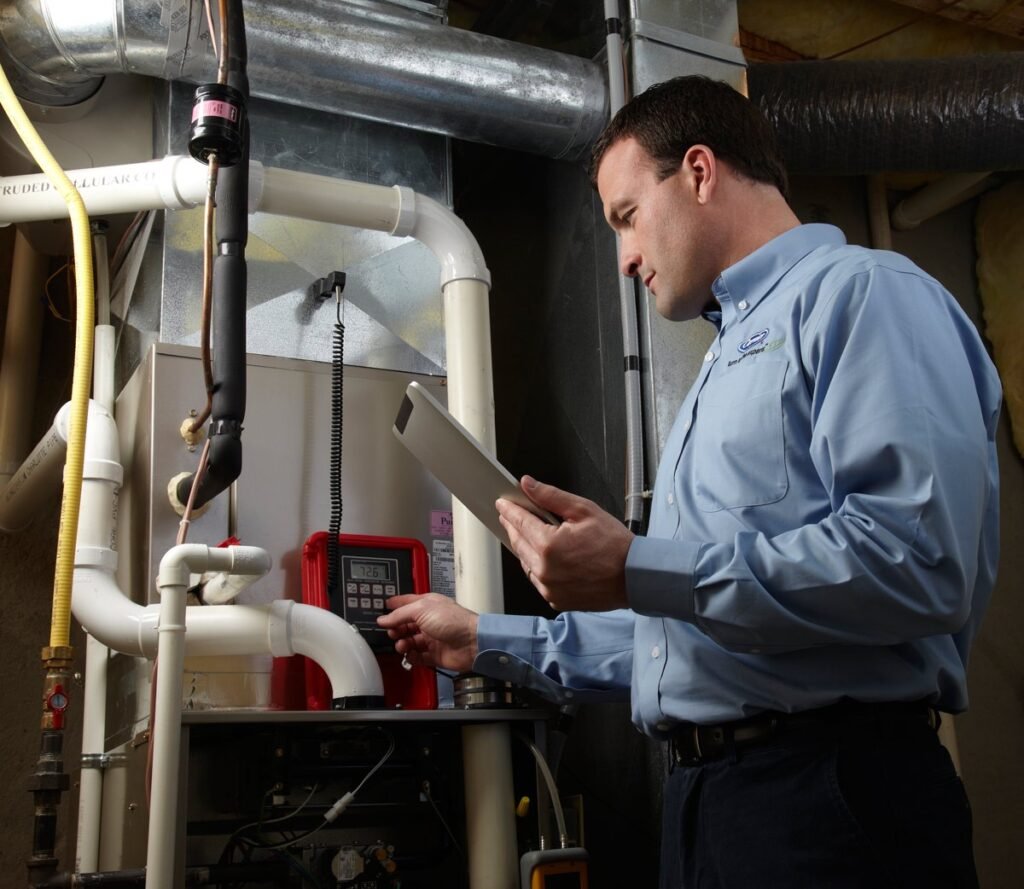
Furnaces or Boilers: Deciding on Your Home's Optimal Heating Solution
Heating systems are a crucial component of a comfortable home, especially in areas that experience cold winters. Two popular options are furnaces and boilers, each with unique features, benefits, and considerations. In this article, we conduct a thorough comparison of furnaces and boilers to assist homeowners in making an informed decision about their ideal heating system.
Understanding Furnaces: How They Work and Their Benefits
How Furnaces Operate
The generation of heat in furnaces involves the combustion of fuel, often natural gas, propane, or oil. Heat generated from combustion is conveyed to the air and distributed throughout the home via ducts and vents. It is commonly referred to as forced-air heating.
Pros of Furnaces
- Cost-Efficiency: In general, furnaces tend to have lower initial installation expenses when compared to boilers.
- Fast Warm-Up: Furnaces excel at quickly warming up a space, providing immediate comfort.
- Air Conditioning Compatibility: Many furnace systems can be effortlessly combined with central air conditioning systems.
- Energy Savings: Modern furnaces can attain exceptional energy efficiency, with select models surpassing 95% efficiency.
Understanding Boilers:
How They Work and Their Advantages Boiler Operation
Boilers heat water or produce steam, which circulates throughout the home via radiators or a radiant floor heating system. This technique is commonly referred to as hydronic heating.
Benefits of Boilers
- Consistent Warmth: Boilers offer even and consistent heat distribution, eliminating cold spots.
- Noise-Free Operation: Boilers operate silently and do not depend on blowers or fans for operation, distinguishing them from furnaces.
- Enhanced Indoor Air Quality: Boilers do not circulate air, thereby preventing the dispersal of dust or allergens.
- Longevity: Boilers typically have a longer lifespan than furnaces.
Key Differences Between Furnaces and Boilers
Heating Mechanism
Furnaces: Utilize a forced-air heating mechanism.
Boilers: Operate through a hydronic heating system.
Installation and Maintenance
Furnaces: Installation is simpler and more affordable, but they necessitate regular filter replacements.
Boilers: Installation can be more complex, but they require less maintenance as they have fewer moving parts.
Energy Efficiency
Furnaces: High-efficiency variants are readily available.
Boilers: Can be more efficient due to water’s heat retention properties.
Factors to Consider When Choosing Between a Furnace and a Boiler
Home Layout and Existing Infrastructure
Consider the existing setup in your home. If your home already has ductwork, a furnace might be more practical. In contrast, homes equipped with a radiant heating system may find boilers to be a better-suited option.
Climate and Heating Needs
In extremely cold climates, boilers can deliver more consistent warmth. Nevertheless, in areas with mild winters, the rapid heating provided by a furnace may be more appealing.
Budget Constraints
While furnaces often come with lower initial costs, it’s vital to account for long-term energy savings and maintenance expenses. Boilers might have a higher upfront cost but can be more cost-effective in the long run due to their efficiency and longevity.
Personal Preferences
Consider personal comfort preferences. A boiler might be preferable if air quality is a concern as it doesn’t circulate air and potential allergens.
Energy Efficiency and Environmental Considerations
Both furnaces and boilers have made substantial advancements in energy efficiency. High-efficiency furnaces can significantly reduce fuel consumption and emissions. Similarly, modern boilers can achieve high levels of efficiency, making them more environmentally friendly. When making your selection, search for systems with Energy Star ratings and explore energy-efficient models to decrease your environmental impact and cut energy expenses.
Conclusion: Making the Right Choice for Your Home
The choice between a furnace and a boiler is a substantial one and relies on various factors, including your home’s infrastructure, climate, budget, and personal inclinations. Furnaces excel in rapid heating and affordability, while boilers ensure uniform warmth and enhanced indoor air quality. Both systems emphasize energy efficiency, and modern innovations provide homeowners with effective means to reduce their environmental footprint while preserving comfort.
To sum it up, there is no universally applicable solution when it comes to choosing the optimal heating system. Homeowners should meticulously assess their unique needs and seek guidance from heating specialists to arrive at an informed decision that guarantees a warm, comfortable, and energy-efficient home environment.
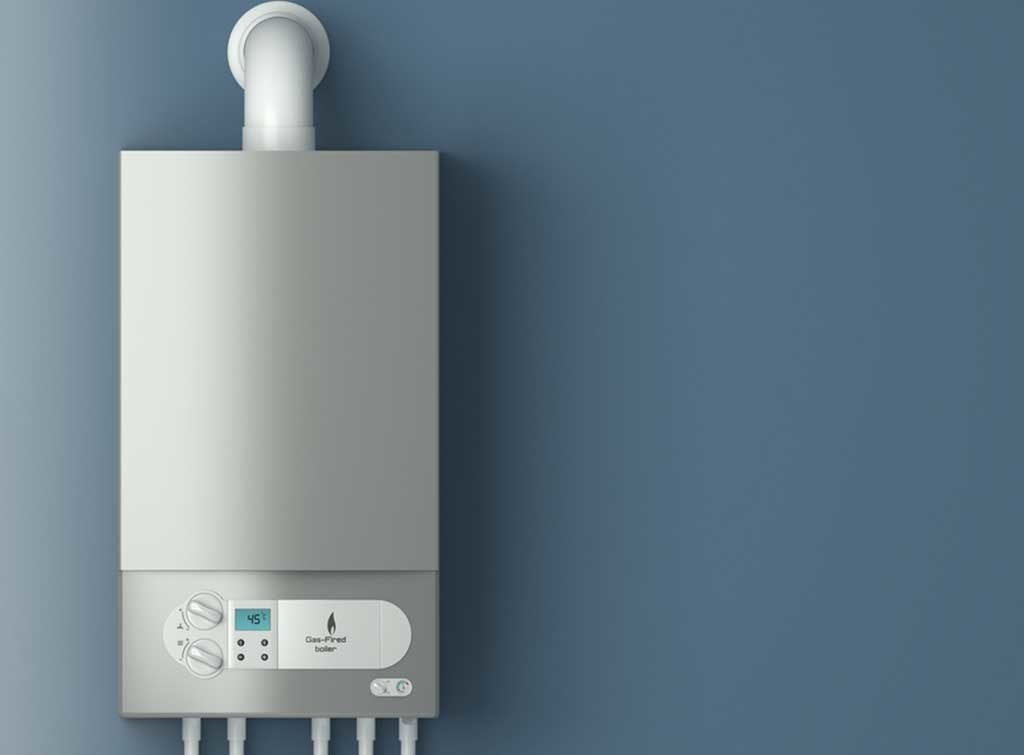
A Comprehensive Guide to Residential Boilers: Answering Your FAQs
Getting a grasp on residential boilers might seem intricate, particularly for new homeowners or those pondering a boiler upgrade. We’ve created this comprehensive guide to tackle the most frequently asked questions regarding residential boilers. Our objective is to deliver precise, informative content that assists you in making well-informed decisions regarding your home heating system.
An Overview of Residential Boilers
In many home heating systems, particularly in colder climates, residential boilers serve as a critical component. They offer a dependable and efficient method of heating water and spreading warmth throughout your residence. This introductory section lays the foundation for a more in-depth examination of residential boilers.
Understanding Boiler Types and Their Functions
- Conventional Boilers: These traditional systems feature separate hot water cylinders and are well-suited for homes with higher water demands.
- Combination (Combi) Boilers: Combination boilers provide hot water and heating without needing a separate water tank. They are best for smaller households with limited space.
- System Boilers: System boilers closely resemble conventional boilers but incorporate some components within the boiler itself, simplifying the installation process.
Key Considerations When Choosing a Boiler
Energy-Efficient Operation
Modern boilers are more energy-efficient than older models. Look for high-efficiency ratings to reduce your energy bills and carbon footprint.
Choosing the Right Size and Capacity
The size of the boiler should match your home’s heating and hot water needs. An oversized or undersized boiler can be less efficient and more costly.
Cost and Budget
Boilers vary in price. It’s essential to balance upfront costs with long-term savings from energy efficiency.
Common Queries About Residential Boilers
Q1: What Is the Lifespan of Residential Boilers?
A: Residential boilers typically have an average lifespan of about 15 years, though this duration can fluctuate based on the boiler type, maintenance efforts, and usage patterns.
Q2: Are Boilers Safe for Residential Use?
A: Yes, boilers are safe when installed and maintained correctly. It’s essential to have regular maintenance checks to ensure safety and efficiency.
Q3: What Is the Most Efficient Type of Boiler?
A: For smaller homes, many consider combination boilers the most efficient since they eliminate the need for a water tank and provide on-demand hot water.
Q4: What Is the Recommended Frequency for Boiler Servicing?
A: Annual boiler servicing ensures safe and efficient functioning.
Q5: Is It Possible to Self-Install a Boiler?
A: Boiler installation requires professional skills, especially in gas boilers. Employing a certified technician is indispensable to ensure safety and adherence to local regulations.
Q6: How Can You Tell If Your Boiler Requires Replacement?
Signs to watch for include frequent breakdowns, diminished efficiency, elevated energy costs, and a boiler exceeding 15 years of service.
Q7: How Much Does a New Boiler Cost?
A: The cost varies depending on the boiler’s type, size, and brand. Prices can range from a few thousand to several thousand dollars.
Maintenance Tips and Troubleshooting Regular Maintenance
Consistent maintenance prolongs your boiler’s lifespan and guarantees peak efficiency. Maintenance tasks encompass yearly servicing, leak checks, and pressure verification.
Common Problems and How to Address Them
Common boiler problems encompass issues like lack of heat or hot water, leaks, unusual noises, and pressure drops. While troubleshooting can rectify certain problems, others necessitate professional intervention.
Environmental Influence and Sustainable Measures
Reducing Carbon Footprint
Modern boiler manufacturers prioritize eco-friendliness in design. Opting for a high-efficiency boiler can substantially diminish your home’s carbon footprint.
Utilizing Renewable Energy
Some boilers can be integrated with renewable energy sources like solar panels, enhancing environmental friendliness.
Conclusion
Residential boilers are essential for countless homes. Homeowners can make informed decisions that lead to cost savings and improved home heating systems by understanding the different types of boilers, their maintenance, and efficiency. To guarantee the safety and durability of your boiler, it’s imperative to seek professional assistance for installation and servicing. Keep in mind that a carefully chosen and well-maintained boiler not only keeps your home comfortable but also plays a role in fostering a greener, more sustainable future.
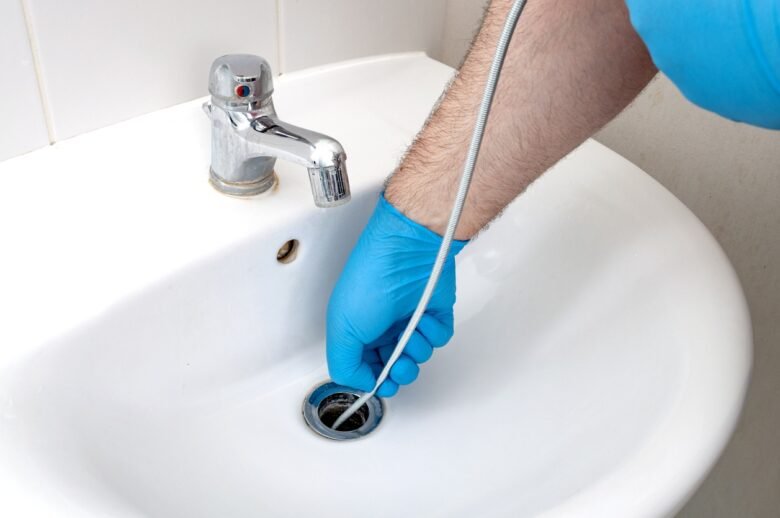
Clearing the Way to a Stress-Free Home: Drain Cleaning Services
We’ve all been there – standing ankle-deep in soapy water in the shower, or frantically grabbing towels as the kitchen sink threatens to flood the entire room. It’s a genuine nightmare, right? But don’t worry, because in this article, we’re diving into the magical world of drain cleaning services.
Picture this: your drain is like a highway, letting water pass without hindrance. Over time, build-up and blockages can turn this highway into a traffic jam. Just like a traffic cop, a professional drain cleaner steps in, waving that plunger like a hero’s cape.
What’s the Big Deal?
Now, you might be thinking, “I’ve got a plunger, I can handle this.” Well, my friend, some clogs are more stubborn than you think. Think of it like this: a plunger is like a superhero sidekick. It can help, but sometimes, you need the superhero itself – the drain cleaning service.
These pros come armed with snaking tools and high-pressure jets, like a surgeon with specialized tools. They get down and dirty, battling the blockages lurking beneath your drains. You could say they’re the superheroes of the drain world!
The Benefits
Here’s the deal: clean drains mean a happy home. No more foul odors, no more standing in puddles, and definitely no more urgent calls to your plumber friend. Plus, it’s eco-friendly because it saves water.
So, there you have it. Drain cleaning services are the unsung heroes of our homes. They keep the water flowing, the sinks draining, and the showers refreshing.
Remember, it’s not just about solving an issue; it’s about avoiding future problems. So, the next time you see signs of a slow drain, don’t hesitate. Get professional help, and let them clear the path to a stress-free home. Your drains will thank you!
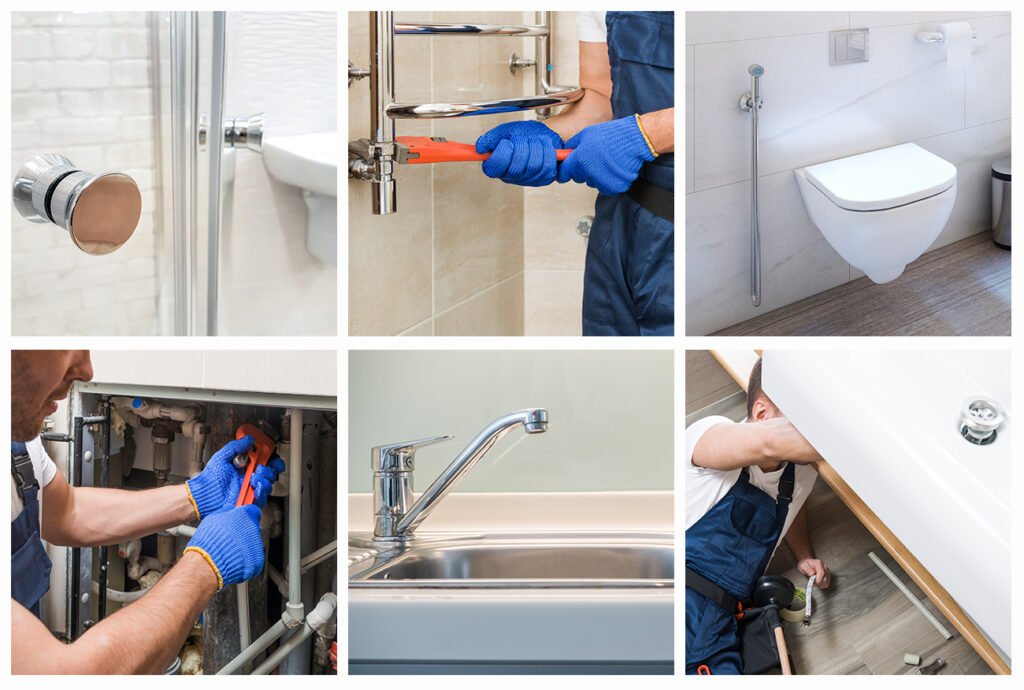
Your Ultimate Guide to Household Plumbing Solutions.
Fed up with faucets that drip endlessly like a leaky faucet in your life? Or perhaps your sink is playing hide-and-seek with the water as it disappears down the drain? We’ve all been there. But rest assured, plumbing services are here to save the day, just like your beloved hero swooping in precisely when you need them the most!
What Are Plumbing Services, Anyway?
Plumbing services are like the unsung heroes of our homes.
They tackle everything pertaining to water, from small drips to significant floods. It’s not just about fixing problems; it’s about making sure water flows like a serene river through your home. Consider them as specialists for your home’s circulatory system!
Dealing with Leaky Faucets and Clogged Drains
Leaky faucets are like that one friend who can’t keep a secret – they just won’t shut up! Plumbing services can fix them pronto. And clogged drains? Think of them as blockages in your plumbing system.
Plumbers act as the solution providers, making sure everything flows smoothly.
Plumbing Installations: A Craftsmanship
Plumbing isn’t only about repairs. It also includes installations. Think of your house as a blank canvas, with the plumbers serving as the skilled artists, constructing the ideal atmosphere of a functioning bathroom or kitchen.
Choosing the Right Plumber
Now, let’s talk about it: you’re in need of the perfect plumber. Similar to dating, your goal is to find a perfect match. Look for licensed, experienced plumbers who won’t cost a fortune.
Conclusion
In a world where water rules, plumbing services are the unsung heroes.
They keep the peace, ensuring water flows smoothly through your home’s veins. When you encounter that annoying leak or come across a persistent blockage, do not delay!
Reach out to your plumbing superhero and allow them to resolve the issue. In the end, a contented home is one with a smoothly-running plumbing system!
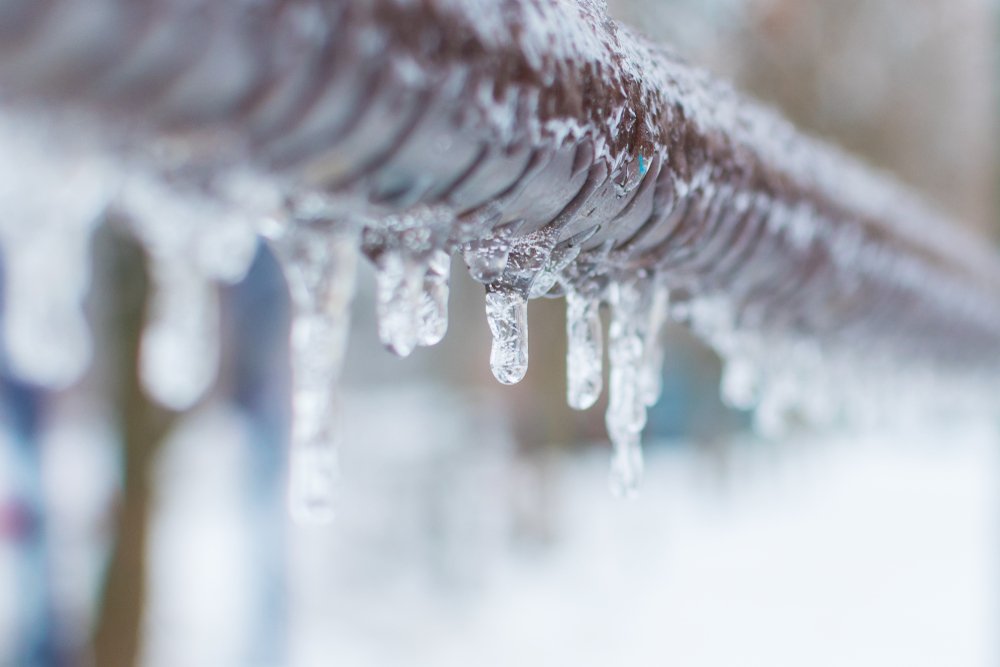
Chilly, isn't it? How to Respond If Your Pipes Have Frozen in Your Leduc Home
With winter’s cold arrival, and you know what that means – the risk of frozen pipes is real. But don’t worry, because I’m here to guide you through this chilly conundrum and help you thaw out those pipes like a pro.
1. Discover the Freeze:
Your initial task is to locate the freeze. Do you turn on the faucet, and nothing but a trickle comes out? That’s your indicator! Check exposed pipes in unheated areas like your basement, attic, or garage. They’re usually the culprits.
2. Turn Off the Water:
Then, stay calm! Immediately shut off the main water valve. This will prevent further damage if a pipe bursts.
3. Open Faucets:
Now, turn on the taps of the impacted pipe. Why? It relieves pressure in the system and allows water to escape when it thaws.
4. Apply Heat:
Time to bring in the heat! Use a hairdryer, heat gun, or heating pad. Carefully and gradually apply warmth to the frozen section, beginning from the tap and moving towards the freeze. Avoid open flames; we don’t want any accidents!
5. Patience Pays Off:
Thawing takes time, so be patient. Keep the heat on until water flows freely again.
6. Future-Proofing with Insulation:
Once you’ve conquered the freeze, take steps to avoid future occurrences. Wrap your pipes in insulation, especially in those vulnerable, unheated spots. Think of it like providing your pipes with a protective, warm cover!
7. Calling the Experts:
If the situation seems beyond your control or a pipe has burst, it’s time to seek professional assistance – your friendly neighborhood plumbers. They have the skills and tools to handle the worst freezes.
Remember, facing frozen pipes is like battling winter’s icy grip. With a bit of know-how and a dash of patience, you can triumph over the cold and keep your home’s water running smoothly. Stay warm, folks!

